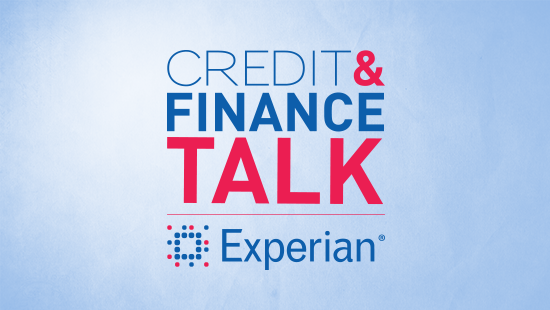Financial Education
One of the largest barriers to financial inclusion is a lack of financial education. Experian is changing that. Our partnerships and initiatives are dedicated to getting the proper tools, resources and information to underserved communities so that consumers can best understand and improve their financial health. Read about our financial education news below:

Bankcard lending is trending upward, according to the 2014 Experian “State of Credit” report. One in 17 consumers obtained at least one bankcard this year, compared with one in 21 people back in 2013. Consumers now carry an average of 2.18 bankcards apiece (an increase of 4.2 percent), and an average of 1.54 retail cards (a jump of 6.7 percent). In other words, credit availability is on the rise. Can we do it smarter this time?

With Small Business Saturday quickly approaching, Experian wants to remind small business owners why it is important to have good business credit. Good credit scores – they’re not just for consumers. Businesses need them, too. According to a recent Experian survey, only 33 percent of small business owners said they were able to get the capital they need to maintain satisfactory cash flow. Good business credit can help business owners receive the funding they need, as well as help them earn more favorable terms and lower interest rates.

Experian Consumer Services in association with Univision Communications Inc., the leading media company serving Hispanic America, recently launched a Spanish-language, credit-focused product and online financial resource center for the U.S. Hispanic community called Crédito y Más. The new product was developed to improve Hispanics access to credit education and resources. With Crédito y Más, consumers can check their credit score, receive a credit report, and have credit monitoring, among other benefits and access the information in Spanish or English. One of the most valuable features is the Centro de Información™, a robust resource center with articles, videos, financial calculators, a glossary of key credit terms and more.

October is National Cyber Security Awareness Month, and Experian’s ProtectMyID® issued its new survey results about cybersecurity. The study, conducted by Edelman Berland, reveals areas where consumers’ identities are the most at risk, including electronic devices and online accounts. The findings show that 93 percent of respondents believe that identity theft is a growing problem yet are not doing enough to address the issue.

Experian is proud to be one of the sponsors and participate in the FinCon 2014 conference, taking place September 18-21 in New Orleans, Louisiana. FinCon is an opportunity for financial media to come together to learn what’s trending in personal finance, share best practices for successful social engagement and how, as a community we can enhance financial education. If you are going to FinCon, we have lots planned! Since the conference is just days away, we wanted to highlight some of the ways you can join in the Experian fun. Join Experian’s Mike Delgado on Friday at 1:30 p.m., as he moderates the session, How to Build a Thriving Community: Top bloggers share engagement strategies that work Are you a community builder or social media manager? Let's get together and chat over coffee on Saturday, September 20th at 8 a.m. Stop by our booth to say hi to the #CreditChat crew, learn more about credit and win some goodies! Find #FinConFreddie! Be on the lookout for “FinCon Freddie” throughout the conference venue. If you happen to spot one of these little hoppers, follow the instructions to claim your $25 gift card. There are eight chances to win, so keep your eyes peeled! Even if you can’t make it to #FinCon14, follow Experian on Instagram and @Experian_US on Twitter for clues where #FinConFreddie is hiding and to learn more credit insights.

The following article is a guest post from Dara Duguay, executive director, Credit Builders Alliance. A good credit history is crucial in today’s economy. Far more than just a number, a good credit score can make the difference in being able to access the affordable lending products necessary to go to college, buy a home, or start and grow a small business. Renting an apartment, paying for car insurance, signing up for utilities and even landing a job can also be affected by a person’s credit history – or the absence of one.

The following article is a guest post from Paul Combe, President and CEO of Boston-based American Student Assistance. According to recent Experian research, student loans were the only type of consumer debt to increase during the recession, growing 84 percent from 2008 to 2014. Today, 40 million Americans carry college loans. The average borrower has nearly four different student loans for a total of $29,000. Keeping track of multiple loan payments and high debt can mean a rough financial start for newly minted college graduates. Evidence is mounting that student debt could be getting in the way of our economic recovery, as growing numbers of millennials delay forming their own households under the weight of their student debt burden.

 Experian® is pleased to announce its partnership with Clear Channel and the premiere of its iHeart Radio show, Credit & Finance Talk with Experian, which is already gaining lots of listeners.
Experian® is pleased to announce its partnership with Clear Channel and the premiere of its iHeart Radio show, Credit & Finance Talk with Experian, which is already gaining lots of listeners.

Did you know children are increasingly vulnerable to being a victim of identity theft? Their clean credit history is an easy target for perpetrators. Thieves often can profit for years before the crime is detected. In general, minors should not have credit activity or a credit report until they apply for loans or a credit card. That said, it is possible that they may have a credit history if you have added them as an authorized user to your credit accounts during their teen years.